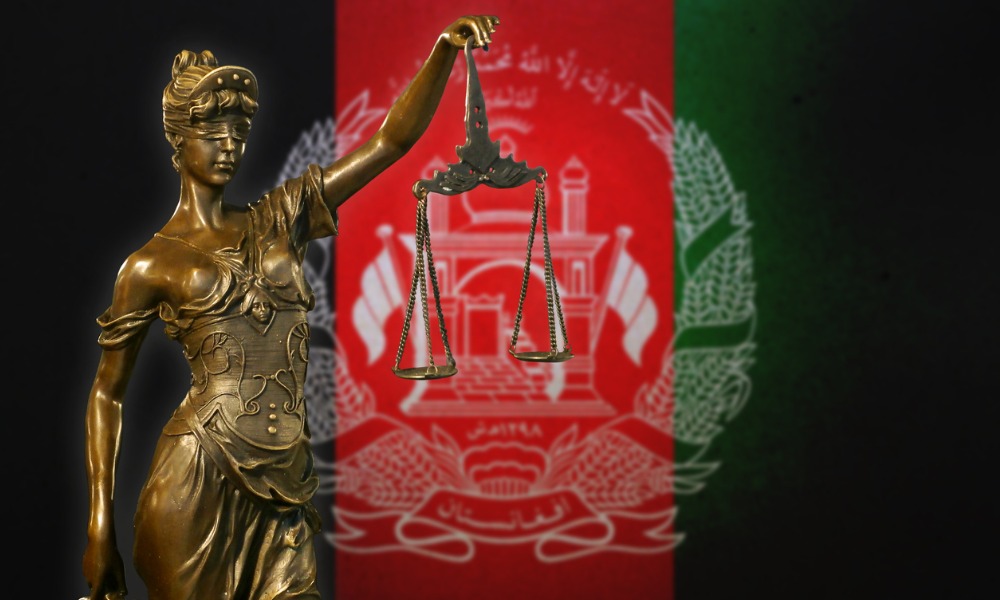
The resurgence of the Taliban forced Afghan judges, prosecutors, and lawyers, to flee the country

The International Bar Association (IBA) has officially granted membership status to the Afghanistan Independent Bar Association in Exile (AIBAIE).
This decision was unanimously approved during the IBA mid-year council meeting on May 25 in Bucharest, Romania. Leaders from national bar associations and law societies worldwide voted to welcome the AIBA in its new format as an entity in exile.
In a joint statement, Ruhullah Qarizada, President of AIBAIE, and Rafi Nadiri, a member of the leadership council, expressed their gratitude, “Each and every Afghan lawyer appreciates this moment. The extension of our membership in the International Bar Association is a clear message that we are not alone in our critical situation. With the official renewal of our membership, we will work more effectively for our members both inside and outside Afghanistan through strong and regular coordination with the IBA.”
Dr. Mark Ellis, IBA executive director, who led the formation of the original AIBA and proposed the creation of a bar in exile, said, “This vote sends a clear signal that the IBA has not forgotten the Afghan legal community. The Taliban’s takeover has not destroyed the work and achievements of the independent bar that the IBA helped establish. We will continue to support AIBAIE’s vital work as the representative organization and global home for lawyers suffering persecution in their homeland and facing immense challenges as refugees.”
The AIBAIE was established following the Taliban’s return to power in Afghanistan in 2021. The resurgence of the Taliban forced the leadership of the original Afghanistan Independent Bar Association (AIBA), along with Afghan judges, prosecutors, and lawyers, to flee the country. Their commitment to upholding the rule of law, human rights, and democracy conflicted with the Taliban’s governance.
Since 2021, there have been numerous reports of abuses, including the killing of judges, and the oppression of journalists and protesters. Women and girls have faced significant marginalization, leading to the coining of the term “gender apartheid.” The Taliban-controlled judicial system has disregarded the rule of law and human rights, leading to arbitrary arrests, torture, and sentencing without legal defence.
In response, the AIBAIE has sought the assistance of the IBA and the United Nations to urgently intervene to ensure the safety of lawyers in Afghanistan, who fear for their lives and livelihoods and who face severe restrictions, torture and ill-treatment by the Taliban. They aim to place pressure on the Taliban to respect the will of the Afghan people and to halt the adoption of regressive and un-Islamic policies. They insist on a prerequisite that for any international recognition of the Taliban regime, there must be an agreement on human rights, the right to legal representation and an independent defence lawyer in legal proceedings. They encourage all international institutions to continue to highlight human rights violations and judicial abuses taking place in Afghanistan in their reports and to hold those responsible accountable.
The IBA’s support for AIBAIE continues the legacy of the original AIBA, a member of the IBA Council for 13 years before being forced into exile in 2021.
“The IBA Council vote was a moment of immense pride for all involved. Both the IBA and AIBAIE are committed to promoting the rule of law, human rights, and resisting authoritarian rule. Having the voice of our Afghan members heard at our council meetings will strengthen our commitment to their protection,” said George Artley, legal director at the IBA, and lead on the bar in exile project.